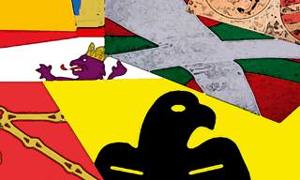

Each PEOPLE has its paths and characteristics in all areas, but Basque nationalism, in its two main branches, has much to reflect on the Catalan process.
For the Abertzale left, and after the crises, also for the Basque society, the fundamental thing is that the peace process should now proceed, but that would remain upside down, without making a critical reading of the past, among other things, of the use of armed struggle: How long was it OK, if ever it was? How long had I been ethical? There will be answers of all kinds, and that is logical, but not important. The important thing is to honestly overcome the critical reflection phase, knowing that all the consequences are part of our history and that the Abertzale Left will have to learn from them in the construction of their future.
There were also jeltzales in the Diada, calling for a state for Catalans in Europe. For the Catalans yes and for the Basques no? Why does the Basque State have no place in the 2015 project? The PNV and CIU have not followed the same paths in the last 30 years, but they are very similar and, as Artur Mas now feels in the chest of the Catalan independentists, so he will pass on to Iñigo Urkullu with the Basque independentists, both from outside – EH Bildu – and from within the Basque territory jeltzales.El.
The Catalans decided a long time ago that they would advance in the principality without waiting for Catalonia to take place with the rest of the territories of the Peoples. The nationalism of Euskal Herria has not yet focused this reflection in depth. The South and the North do, two States, two tempus. But there has not been much discussion about the South. The truth is that the pragmatism of the Jeltzales has long been betting on a strong Euskadi, which until now had always chosen autonomy.
In the last 30 years, the Abertzale left has avoided reflection with the decision unit of Hegoalde. With the Declaration of Brotherhood he recognized, almost ten years ago, that today the CAV and Navarre have to decide for themselves. Then, in the Loiola talks, seeing what happened with the referendum on a possible autonomy status for Navarre and the CAV, it is clear that there was no consensus on the Abertzale left claro.EL CASE
IT IS NOT SIMPLE: If it achieves the majority of the citizens, should the CAV make its way for independence, without waiting for the incorporation of Navarre? Or, leaving independence for later on, should national construction be developed by sculpting other characteristics throughout the South? When nationalism has the broadest institutional representation in Navarre over the past 30 years, should the gap between the two communities be widened? Or would it not be better for Basque culture and nationalism to continue to get fatter in the social opposition of nabarrism? Or, even more, if there is an occasion, send UPN to the opposition and fatten in its alternative government?
After ETA, is it possible that the new generations of Navarros grow in the Navarro, that is, in the Basque, and not in their hatred? With the peace process, it is inevitably a step-by-step debate. There are reasons to be optimistic: The ETA pagotxa has disappeared from Navarrism, the result of the last years of the nationalists – which started with NaBai – is there, the deep economic crisis… With football success, the appeal of Spain is today, also in Navarre, insignificant. And it is important not to forget many things, including the fact that 30 years ago the PSOE of Navarra was in favour of self-determination. Half the life of a person, the third -- just 30 years in the history of a people.
That is all a matter of debate, of course. But there is less and less debate in the truth that transversalsm seeks to cover: decision-making competence is in Catalan, Basque and Navarra societies. By elections, by consultation or by referendum, and the better by agreement, the more transversal, but the majority of the citizens decide. Is it self-determination, at last?